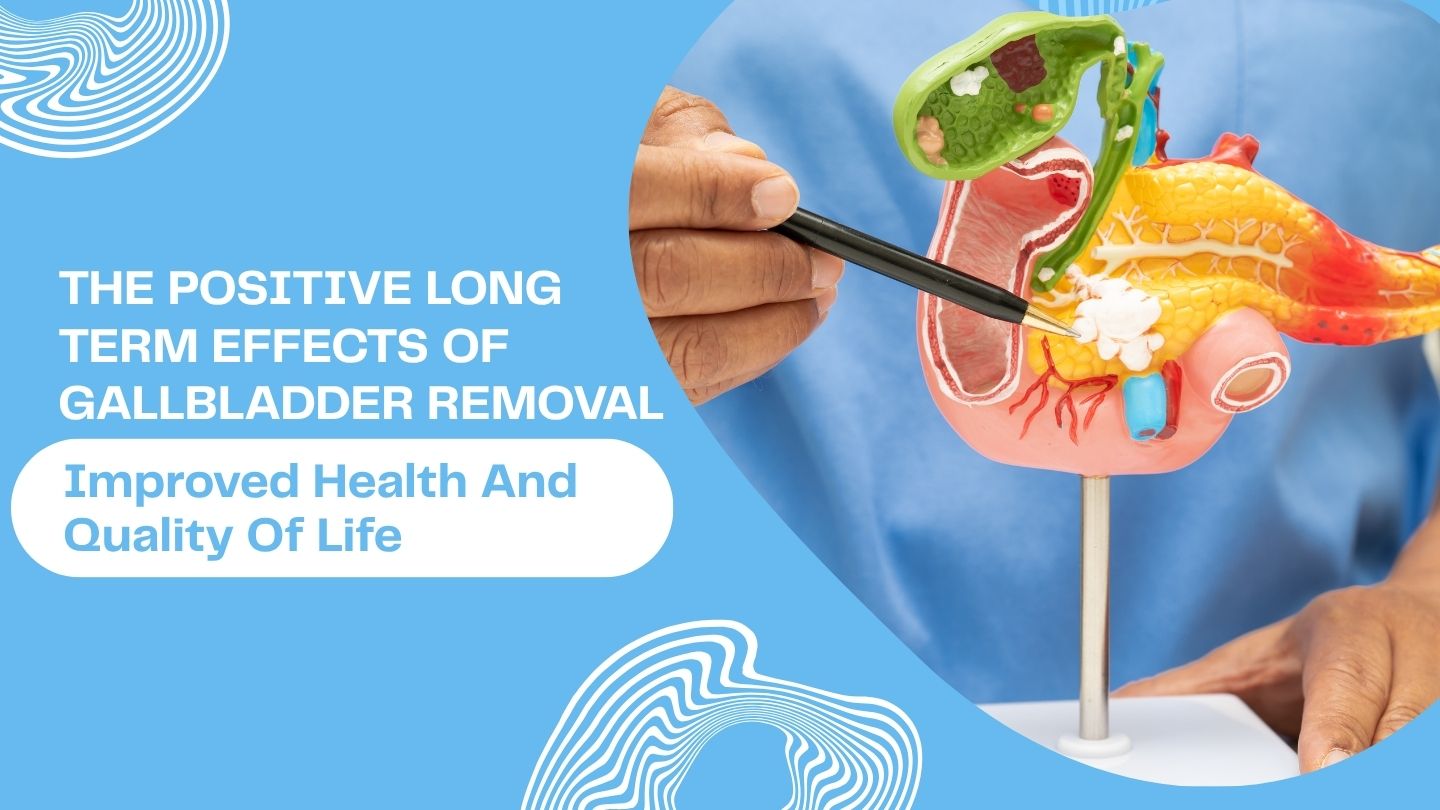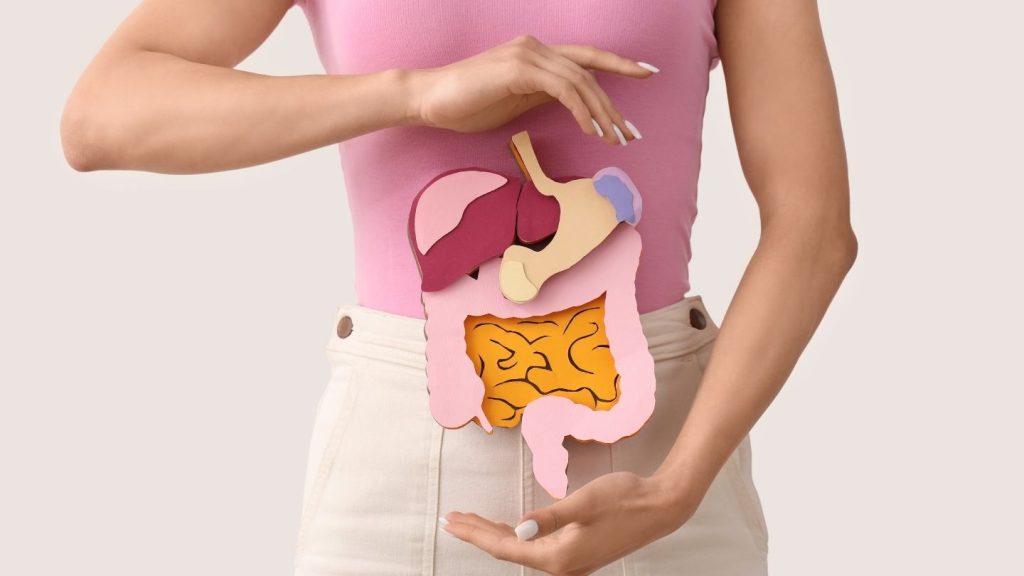
The Positive Long-Term Effects of Gallbladder Removal: Improved Health and Quality of Life
Gallbladder removal can bring significant improvements to your health and quality of life. From pain relief to improved digestion, the long-term benefits often outweigh the challenges. If you’re struggling with gallbladder issues, this blog will walk you through how surgery can enhance your overall well-being and what to expect after the procedure.
Key Takeaways
- Gallbladder removal surgery significantly alleviates chronic pain and improves quality of life for patients.
- The surgery prevents the recurrence of gallstones and reduces the risk of severe complications associated with gallbladder disease.
- Post-surgery, patients experience enhanced digestive health, better nutrient absorption, and increased energy levels, contributing to overall well-being.
Relief from Chronic Gallbladder Pain
To make an informed decision, it’s essential to begin by understanding when gallbladder removal surgery is necessary, especially if you’re experiencing recurring symptoms that interfere with daily life. Undergoing gallbladder removal surgery can provide a significant respite from the severe pain and digestive problems caused by gallbladder disease. The procedure often results in considerable improvement for patients suffering from persistent abdominal pain and ongoing digestive issues, particularly removing the source of discomfort due to gallstones.
Experiencing freedom from constant upper right abdomen distress or sharp episodes of biliary colic can greatly enhance daily living. This isn’t merely a short-term solution. It paves the way for sustained improvement in overall health and day-to-day activity levels. Numerous patients report marked improvements in their quality of life following surgery, liberated from continuous digestive complications such as upper abdominal pain and post-cholecystectomy syndrome.
Embarking on a journey toward a life without pain frequently entails deciding to proceed with gallbladder surgery. By extracting the organ that is causing pain, this intervention tackles the underlying issue, leading to an existence defined by greater comfort and significantly lessened abdominal irritation. Although adapting post-surgery may require some effort, these transient obstacles are typically overshadowed by enduring positive outcomes.
Prevention of Gallstone Recurrence
Gallstone-related discomfort and complications are frequently triggered by recurring bouts of pain. Gallbladder removal surgery, on the other hand, effectively removes the potential for new gallstones to develop and eradicates gallstone disease since it eliminates the organ where stones might form. This results in a definitive resolution to issues related to the gallbladder.
Undergoing a procedure to remove the gallbladder markedly diminishes instances of biliary colic and its associated risks, like inflammation or infections that come with biliary diseases. With this type of surgical intervention, you’re liberated from persistent concerns about enduring another excruciating episode, enabling you to engage fully with life without constant disruptions.
There is substantial relief in knowing that your body won’t be plagued by future formations of gallstones. The reduced risk translates into fewer unexpected trips seeking emergency medical care and less apprehension over possible severe outcomes, which fosters an overall sense of calmness conducive to a more carefree existence.
Enhanced Digestive Health

The digestive system operates through intricate coordination to ensure proper function. After the removal of the gallbladder, bile is directly channeled from the liver into the small intestine. This aids in more effective food breakdown and can greatly improve digestive health due to a steady flow of bile.
In the beginning, individuals often go through a temporary period of adjustment with their diets, particularly when it comes to fatty foods and larger meals. With time, most find that they adapt well to their altered digestive system without enduring complications. Slowly adding fat back into one’s diet after surgery can be beneficial for nutrient absorption and comfort during digestion.
Implementing a high-fiber diet composed predominantly of whole foods can help regulate bowel movements while boosting nutrient absorption, which is a key element for maintaining good digestive health and consistent bowel patterns post-surgery. Including an abundance of fruits, vegetables, and whole grains is crucial throughout this adaptation phase. Opting for smaller portions spread out over frequent meals may facilitate smoother dietary adjustments, supporting overall digestion.
Post-gallbladder surgery patients frequently observe notable improvements in their digestive health thanks to uninterrupted bile flow, a change which positively impacts not only gastrointestinal wellness but also contributes meaningfully towards enhancing general quality of life and promoting healthier habits.
Reduced Risk of Severe Complications
The elimination of the gallbladder, a small organ tasked with storing bile, is known to substantially mitigate the risk of serious health issues and bolster both safety and assurance. Blockages within the bile ducts can precipitate grave conditions such as irreversible scarring of the liver. Having one’s gallbladder removed via surgery negates this threat. Such surgical interventions are typically executed using laparoscopic techniques, including laparoscopic cholecystectomy and open cholecystectomy procedures.
Extracting the gallbladder precludes potential infections that might provoke severe complications. The procedure significantly diminishes the chances of developing ailments like gallstone-related pancreatitis or even cancer within the organ responsible for bile storage.
This frequently conducted operation boasts an impressive track record for safety and efficacy due largely to contemporary advancements in surgical technology, which afford less invasive options associated with reduced discomfort. Regardless of whether patients undergo keyhole surgery (laparoscopic), open surgery, or any other sophisticated operative methods available today, they can look forward to expedient recovery periods paired with a considerable decrease in life-threatening complications—an outcome conducive to sustained healthiness thanks to these secure traditional (open) and modern surgical approaches.
Improved Nutrient Absorption
Removing the gallbladder can lead to enhanced nutrient uptake. Following the procedure, there is a constant movement of bile into the small intestine, which boosts nutrient assimilation. The digestive system benefits from this steady stream by more effectively breaking down and absorbing vital nutrients.
With no gallbladder in place, the body adapts by ensuring a perpetual release of bile straight into the small intestine, which is responsible for transporting bile, thus sustaining proficient digestion processes. This uninterrupted presence of bile aids in processing fats and proteins along with other important nutritional elements, guaranteeing that one’s nutritional requirements are met.
Adopting a diet abundant in whole grains and lean proteins while high in fiber greatly influences post-operative nutrient absorption sustainability. Emphasizing balanced dietary habits and conscientious eating decisions promotes not only digestive health but also overall wellness, resulting in an invigorated lifestyle marked by better health outcomes.
Stabilized Weight Management
The process of gallbladder removal can have a beneficial influence on weight control. The reinstatement of a normal appetite and the capacity to eat adequate meals aid in sustaining a healthy weight. Depending on how their bodies adjust to alterations in fat processing, some people may experience weight loss. Others might notice an enhancement in metabolism and energy expenditure.
Patients’ experiences with changes in weight following gallbladder surgery differ, but typically, the impact on managing one’s weight is favorable. Embracing nutritious eating habits and an overall wholesome lifestyle supports individuals in reaching and upholding a healthy weight level, which contributes to a more harmonious and satisfying existence.
Lower Incidence of Inflammatory Episodes
Extraction of the gallbladder decreases the chances of infections within the biliary system, which in turn minimizes medical treatments associated with inflammation. The decreased incidence of inflammation contributes to improved long-term health outcomes and diminishes the frequency of healthcare consultations.
Individuals living without a gallbladder encounter reduced occurrences of gallbladder inflammation and its accompanying pain, leading to a more comfortable existence. This enduring advantage bolsters their general wellness and lessens reliance on medical interventions aimed at treating inflammatory conditions.
Better Control Over Diet and Eating Habits
Following the removal of their gallbladder, individuals often experience improved management over their dietary practices. To sidestep digestive issues and foster overall wellness, adhering to a diet low in fat that includes an array of fruits, vegetables, and whole grains is advisable. Opt for food preparation methods such as boiling, baking, steaming, or grilling, which are gentler on the digestive tract.
Consuming meals that are smaller in size more frequently can facilitate smoother digestion while reducing potential discomfort, including high-fiber foods, particularly those with soluble fiber, which aids in normalizing bowel movements and increasing absorption of nutrients. It’s important to be conscious about what you eat post-surgery and gradually enhance your intake of fiber to circumvent gas formation and abdominal cramping.
Post-gallbladder surgery also offers better regulation over appetite, resulting in healthier selections when it comes to food choices, leading to superior diet regulation over time. This level of control plays a significant role not only in achieving but also in maintaining an ideal body weight, thus supporting enduring health within one’s digestive system.
Increased Energy Levels

Undergoing gallbladder removal can lead to a notable enhancement in energy levels, as it addresses chronic pain and digestive problems, enabling the body to operate with greater efficiency. This surge in energy often results in individuals experiencing an elevated sense of vitality after surgery, which helps them become more involved in everyday activities and maintain a more vigorous lifestyle.
The absence of the gallbladder improves the body’s proficiency at digesting food and assimilating nutrients, leading to yet another increase in overall energy. This heightened energetic state underpins a healthier existence and contributes significantly to enjoying life’s daily pursuits more intensely while achieving an improved quality of life.
Financial Benefits from Reduced Medical Costs

Undergoing gallbladder removal surgery can result in considerable long-term financial benefits by obviating the need for continuous management of gallbladder disease. The subsequent improvement in health leads to decreased healthcare costs and heightened productivity. In the United States, the expense associated with gallbladder surgery falls between $10,000 and $20,000. Anticipated savings from lessened medical interventions substantiate its cost-effectiveness.
Opting for ambulatory surgery centers over traditional hospital settings when having a gallbladder removed may bring down the total cost due to their lower operational expenses. Enrolling in clinical trials focused on gallbladder removal could allow individuals to access treatment at minimal or no expense, which can alleviate financial strains significantly.
These economic efficiencies provide substantial relief after undergoing such a procedure by contributing to fiscal stability. Post-surgery individuals thus enjoy peace of mind as they are not burdened with recurrent healthcare expenditures and can concentrate on recovering and maintaining their health without additional stress related to costs.
Embracing a Healthier Future After Gallbladder Surgery
Gallbladder removal can offer lasting benefits for individuals suffering from chronic gallbladder issues, such as gallstones or inflammation. Over time, many patients experience significant relief from digestive discomfort and a noticeable improvement in quality of life. By eliminating the root cause of persistent abdominal pain and dietary distress, gallbladder surgery often leads to greater long-term wellness and fewer gastrointestinal complications.
At Wellstar Comprehensive Bariatric Services, we specialize in advanced, minimally invasive techniques for gallbladder removal in Cobb County, as well as surrounding areas including Marietta, Smyrna, Austell, LaGrange, and West GA. If you’re experiencing symptoms that may be linked to gallbladder dysfunction, we’re here to provide a personalized surgical plan that prioritizes your comfort and long-term health. Let us help you move forward with confidence and clarity—your path to digestive relief starts here.
Frequently Asked Questions
What are the long-term benefits of gallbladder removal surgery?
Long-term benefits of gallbladder removal surgery include relief from chronic pain, prevention of gallstone recurrence, and improved digestive health. Additionally, patients may experience better nutrient absorption, reduced risk of complications, and enhanced overall well-being.
How does gallbladder removal affect digestion?
Gallbladder removal results in continuous bile flow into the small intestine, which can enhance food breakdown and digestion.
Most individuals adapt over time, often experiencing improved digestive health and nutrient absorption.
Will I need to follow a special diet after gallbladder removal?
After having your gallbladder removed, it is recommended to maintain a diet that is low in fat and to eat smaller meals more often throughout the day to aid in digestion.
Adding foods rich in fiber to your diet while steering clear of fatty, spicy, and processed foods can also help you avoid any digestive issues.
Can gallbladder removal surgery lead to weight loss?
Gallbladder removal can lead to weight loss due to altered fat digestion and improved metabolism, although individual results may vary.
It is essential to monitor changes post-surgery, as they can differ from person to person.
